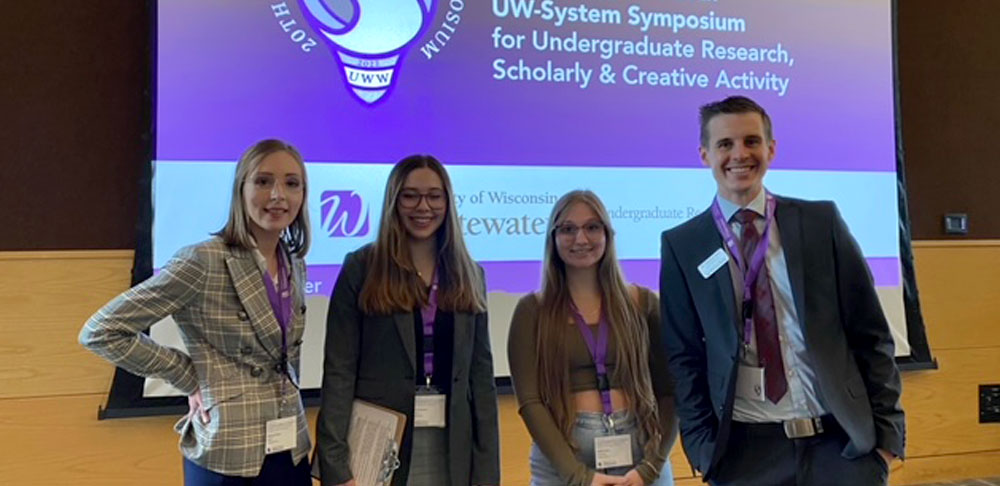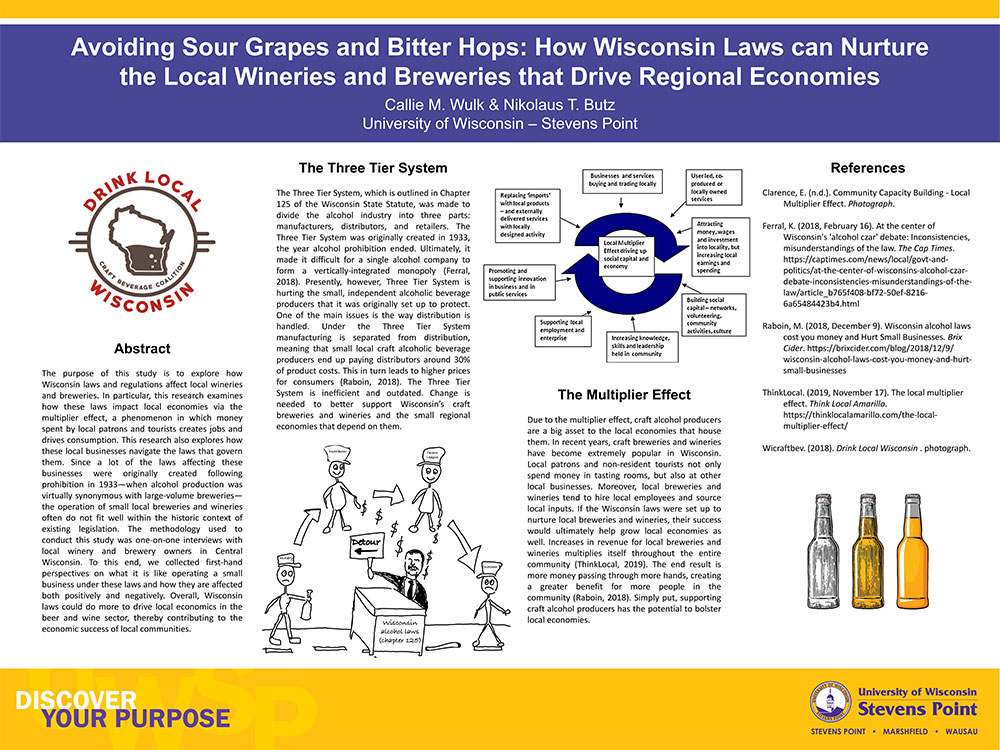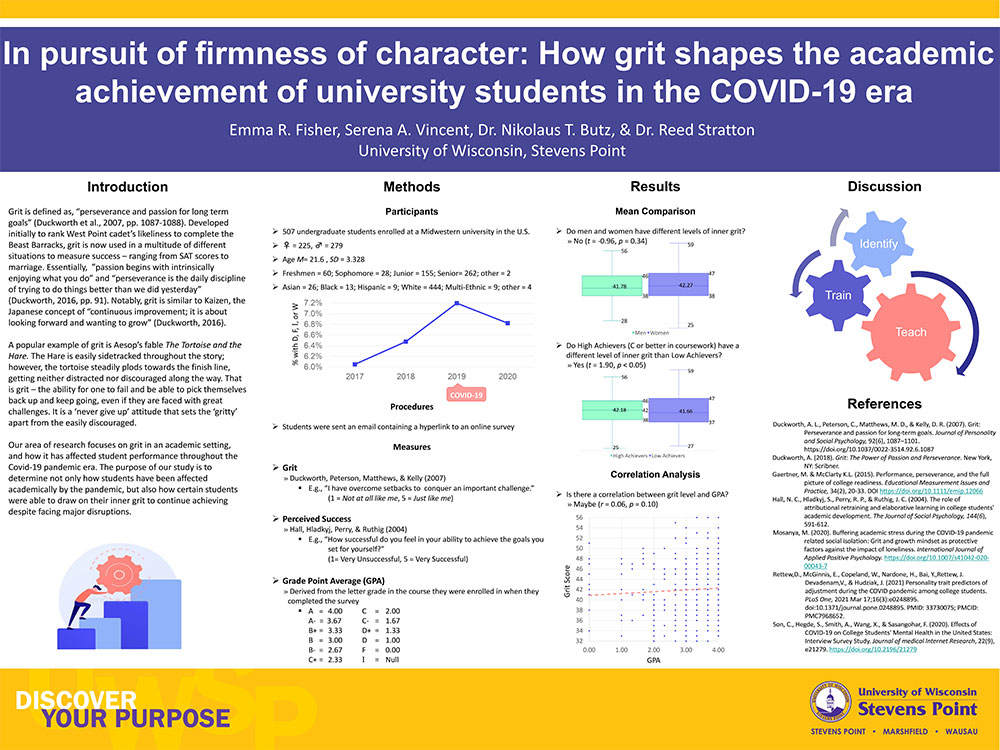

Three students from the UW-Stevens Point School of Business and Economics were a part of the 20th Annual UW System Symposium for Undergraduate Research, Scholarly, Creative Activity on Friday, April 20, 2022, at UW-Whitewater. [View Photos]
Callie Wulk
Avoiding Sour Grapes and Bitter Hops: How Wisconsin Laws can Nurture the Local Wineries and Breweries that Drive Regional Economies

The purpose of this study is to explore how Wisconsin laws and regulations affect local wineries and breweries. In particular, this research examines how these laws impact local economies via the multiplier effect, a phenomenon in which money spent by local patrons and tourists creates jobs and drives consumption. This research also explores how these local businesses navigate the laws that govern them. Since a lot of the laws affecting these businesses were originally created following prohibition in 1933—when alcohol production was virtually synonymous with large-volume breweries—the operation of small local breweries and wineries often do not fit well within the historic context of existing legislation. The methodology used to conduct this study was one-on-one interviews with local winery and brewery owners in Central Wisconsin. To this end, we collected first-hand perspectives on what it is like operating a small business under these laws and how they are affected both positively and negatively. Overall, Wisconsin laws could do more to drive local economics in the beer and wine sector, thereby contributing to the economic success of local communities.
Emma Fisher
In pursuit of firmness of character: How grit shapes the academic achievement of university students in the COVID 19 era

Grit is defined as, “perseverance and passion for long term goals” (Duckworth et al., 2007, pp. 1087-1088). Developed initially to rank West Point cadet’s likeliness to complete the Beast Barracks, grit is now used in a multitude of different situations to measure success – ranging from SAT scores to marriage. Essentially, ”passion begins with intrinsically enjoying what you do” and “perseverance is the daily discipline of trying to do things better than we did yesterday” (Duckworth, 2016, pp. 91). Notably, grit is similar to Kaizen, the Japanese concept of “continuous improvement; it is about looking forward and wanting to grow” (Duckworth, 2016).
A popular example of grit is Aesop’s fable The Tortoise and the Hare. The Hare is easily sidetracked throughout the story; however, the tortoise steadily plods towards the finish line, getting neither distracted nor discouraged along the way. That is grit – the ability for one to fail and be able to pick themselves back up and keep going, even if they are faced with great challenges. It is a ‘never give up’ attitude that sets the ‘gritty’ apart from the easily discouraged.
Our area of research focuses on grit in an academic setting, and how it has affected student performance throughout the Covid-19 pandemic era. The purpose of our study is to determine not only how students have been affected academically by the pandemic, but also how certain students were able to draw on their inner grit to continue achieving despite facing major disruptions.
Serena Vincent
The Psychology of Successful Leaders: Unlocking Leadership Potential Through Growth Mindsetand Systems Thinking

The purpose of this study was to examine the psychology of leadership by exploring how successful leaders use growth mindset and systems thinking. First, in terms of growth mindset, successful leaders tend to internalize the belief that their most basic abilities can be developed through hard work and dedication. Second, in terms of systems thinking, a successful leader will seek to understand the nature of why situations are the way they are, including how thoughtful changes may improve results. The importance of growth mindset and systems thinking becomes even more pronounced when leaders face seemingly insurmountable obstacles. To this end, the present study analyzed the behaviors of historical leaders Roald Amundsen and Robert F. Scott, the first explorers to reach the South Pole, and identified how their disparate approaches influenced the effectiveness of their leadership styles. While we no longer live in the Age of Polar Exploration, growth mindset and systems thinking are still key tools for developing reliance—a highly-sought after trait among today’s leaders. In truth, the most successful leaders today are those that have learned to embrace uncertainty as an opportunity to learn and grow.
